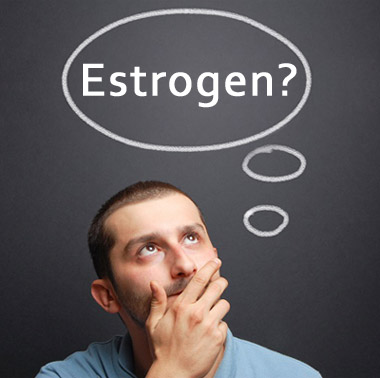Young Men, Waist, Testosterone and Erectile Function: Low-T is not only an old man's issue
- Published in Waist - Abdominal Obesity

Most people, including traditional doctors, think that testosterone deficiency is an old man’s issue. This is very wrong! Actually, an excess amount of body fat can cause a man’s testosterone levels drop to as much as 10 years of aging.[1]
Several studies have demonstrated that too much body fat is associated with reduced testosterone levels independent of aging.[2-4]
Low levels of testosterone (both total and free testosterone) are a consistent feature among young men below 40 years of age with metabolic syndrome, the hallmark of which is an enlarged belly.[5]
Young men (20–39 years) with the lowest baseline total testosterone levels have the highest risk of developing cholesterol and blood fat abnormalities (dyslipidemia). [6] Compared to age-matched men with the highest baseline total testosterone levels of 663 ng/dL or higher, those with the lowest baseline total testosterone levels of 418 ng/dL or below had up to a twofold greater risk of developing an adverse lipid profile 5 years later, which in turn could contribute to future risk of cardiovascular disease.[6]
Thus, testosterone deficiency clearly has health implications also for younger men. But how much does your belly actually impact your testosterone levels… and erectile function?
Estrogen elevations in response to Testosterone Therapy – to treat or not?
- Published in Testosterone Replacement Therapy

During testosterone therapy, total and free estradiol (the main form of estrogen) levels increase dose-dependently in both young (aged 19-35 year old) and 52 older (aged 59-75 year old) men, and more so in older men compared to younger men.[1]
The potential clinical consequences of higher estradiol levels and higher estradiol-to-testosterone ratios in older men remains poorly understood, and the optimal management of high-normal or elevated estrogens is controversial among clinicians.[2]
Interestingly, in some patients, an initial elevation in estradiol is followed by decreased estradiol after prolonged testosterone therapy.[3, 4] This may be due to reduced body fat mass or decreased testosterone levels over time with fixed dose treatments.
Here you will get advice on how to best approach estrogen management while on testosterone therapy…
Multiple beneficial effects of testosterone replacement therapy in men with testosterone deficiency
- Published in Testosterone Replacement Therapy

Alleged concerns regarding risk of cardiovascular disease with testosterone replacement therapy (TRT) have been promulgated recently. However, a large and growing number of intervention studies show to the contrary that TRT reduces cardiovascular risk factors and confers multiple beneficial health effects. Thus, fears promoted by some recent flawed studies need to be critically re-evaluated.
This article gives an overview of studies that have investigated health effects and safety of TRT.[1] As outlined here, the position that testosterone deficiency (TD) should be regarded as a risk factor for cardiovascular disease is supported by a rapidly expanding body of evidence.[2-4]



